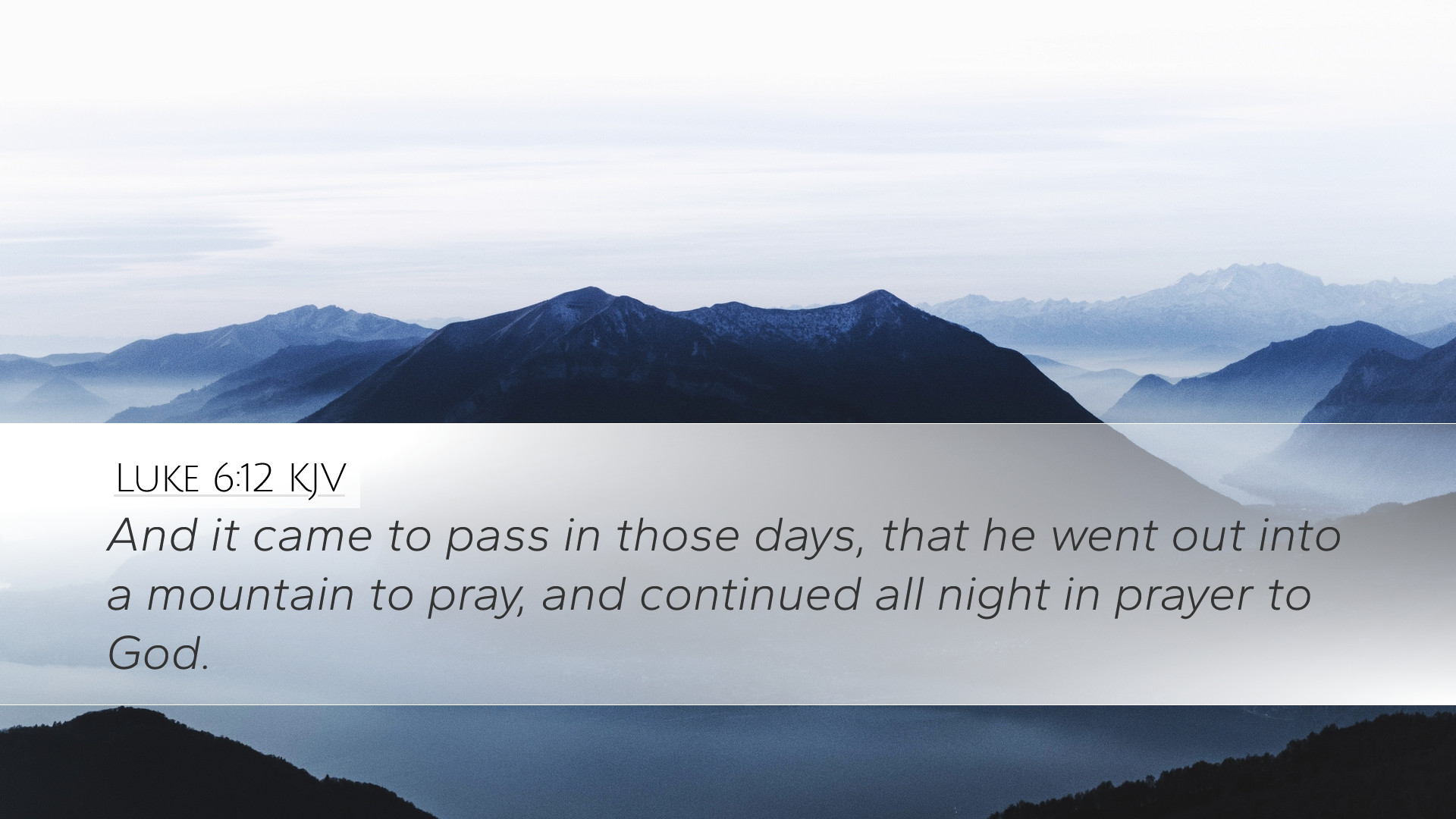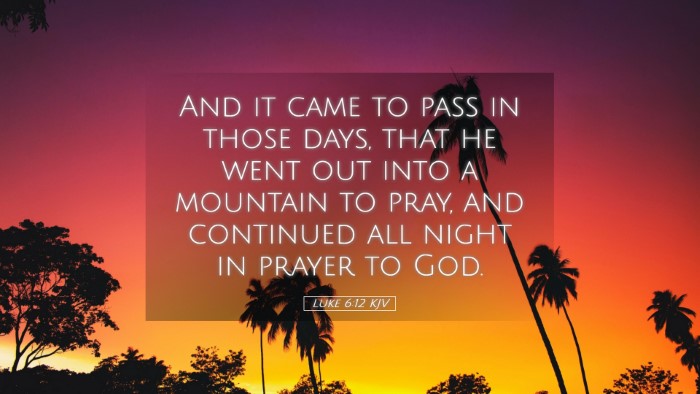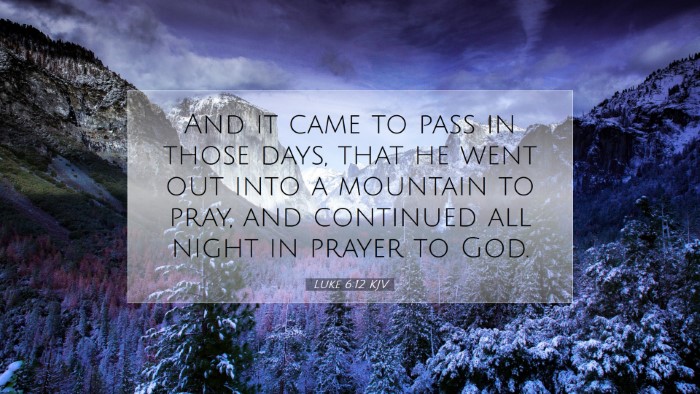Commentary on Luke 6:12
Verse Reference: Luke 6:12 - "Now it came to pass in those days that He went out to the mountain to pray, and continued all night in prayer to God."
Introduction
This verse captures a significant moment in the ministry of Jesus before the selection of the twelve apostles. The act of prayer is vital in the life of Christ, demonstrating His complete reliance on God the Father. Analyzing this moment offers rich insights into the nature of prayer, preparation for ministry, and the relationship between Jesus and His disciples.
Contextual Analysis
Understanding Luke 6:12 requires examining the surrounding verses and the broader narrative of the Gospel of Luke. Prior to this event, Jesus had been teaching and healing, drawing considerable attention. The need for prayer becomes evident as He faces the momentous task of choosing His close followers.
Prayer as Preparation
Matthew Henry points out that Jesus' choice to pray all night illustrates the importance of seeking God's will and guidance in significant decisions. The Son of God, who had constant access to the Father, modeled the need for prayer. His retreat to the mountain signifies a distinction between the ordinary and the sacred—highlighting that spiritual endeavors necessitate spiritual preparation.
The Mountain Top Experience
Albert Barnes reflects on the symbolism of the mountain, suggesting that it represents a place of solitude and communion with God. Mountains in Scripture often indicate a setting where one meets God in a profound way, reminiscent of Moses on Mount Sinai. This signifies that Jesus not only found a quiet place for prayer but also entered a space conducive to spiritual clarity and revelation.
All Night in Prayer
Adam Clarke elaborates on the significance of praying all night. This act, uncommon to many, reflects the depth of Jesus' commitment to His mission and the gravity of His choices. The all-night vigil serves multiple purposes: it exemplifies persistence in prayer, acknowledges the challenges ahead, and reveals Jesus' dedication to His disciples, whom He would soon commission.
Theological Implications
Luke 6:12 conveys theological principles that bear weight on prayer and divine guidance. It emphasizes the importance of divine involvement in our human decisions, especially in leadership contexts.
- Divine Reliance: Jesus demonstrates that even He, despite being divine, finds strength and direction through prayer. This affirms the belief that all believers should seek God's wisdom in their decisions.
- Intentionality in Leadership: Jesus' choice to pray before choosing His apostles suggests that prayer is integral to effective leadership. Modern-day leaders are reminded to precede decisions with earnest prayer.
- Temporary Retreats: Taking time away from distractions aligns with Jesus’ example. It encourages ministers and believers alike to seek solitude for the purpose of spiritual rejuvenation.
Practical Applications
There are several practical applications drawn from Jesus’ example in Luke 6:12 that can enrich the lives of pastors, students, theologians, and Bible scholars:
- Establish a Prayer Routine: Following Christ’s example, individuals and church communities should prioritize regular, prolonged prayer as a critical aspect of spiritual life.
- Seek Guidance in Decisions: Like Jesus, believers should seek God’s direction when making important decisions, particularly in areas impacting the community or church body.
- Valuing Solitude: In our busy lives, it is essential to carve out time for solitude and reflection, allowing for deeper engagement with God through prayer.
Conclusion
Luke 6:12 serves as a profound reminder of the necessity of prayer in the followers of Christ’s lives. The act of praying before making significant choices illustrates Jesus’ commitment to His mission and the importance of God's guidance. For pastors, students, and scholars, this passage reaffirms the integration of prayer in all aspects of ministry and life—an enduring example from the life of Jesus that calls believers to draw close to the Father.


